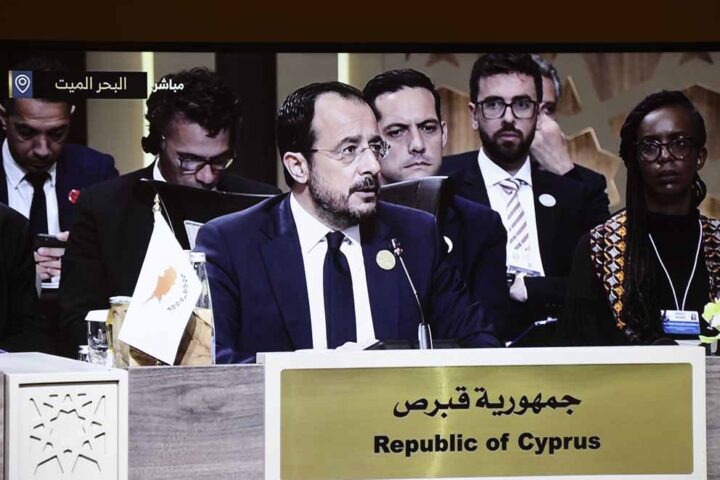Everybody needs a good conspiracy theory now and then, but Cyprus, it seems, cannot get enough of them.
Everything is blamed on ‘external factors’ and ‘foreign interests’, while nothing is attributed to incompetence or downright stupidity.
Then again, judging from the calibre of political ‘discussion’ it is not surprising that a good conspiracy theory provides the ground for a cover-up or shortcomings of ruling and opposition political parties.
However, it is sad to see that in the conspiracy theory surrounding the alleged Israeli spy van, the police force has got itself entangled in a dark web, either by the instruction of a politician or even a senior government official(s).
This has been a strange story from the outset. A high-tech communications company, with expertise in monitoring, has promoted its technological capabilities through a well-publicised news broadcast.
However, instead of appealing to nation-states that have an urgent need for such methods to ensure homeland and border security, the report boomeranged on the tech company, as it seemed to have violated basic laws in Cyprus. Or did it?
The company claims it did nothing wrong, as it insists that it has informed the police of its actions all along, evidence of which has failed to reach public view.
On the other hand, one of the alleged ‘victims’ of this spy-van is none other than the main opposition party, AKEL, claiming that the ruling DISY officials are behind this malicious intent.
If that is the case, why did AKEL, which said it knew of the espionage way back from August, only make a fuss three months later, obliging the President to request the case file, which was discussed in private with the AKEL leader?
It has now transpired that the tech company has cooperated with national security agencies, some of which do not seem to be in communication with each other, while a straightforward wi-fi installation at Larnaca airport way back in 2016 has also been called into dispute.
The tech company’s cynical statements with some vague declarations did not help either, as the only thing achieved was to antagonise both the police and AKEL, at a time when more civil cooperation among all parties, and outside of public view, could have helped diffuse the situation.
What is tragic is that three local staff of the tech company were taken into custody by the police, with the court refusing to remand them in police custody as they were not considered a threat to national security or able to tamper with the evidence.
This has been a case of a total breakdown in communications – between the President, the Justice Minister, the Attorney General and the police.
The previous minister and the former police chief were obliged to step down after the lack of proper action by the police, in the case of the serial killer, blew up in their faces.
In the absence of any police reform and redesigning the outdated model by which it operates, as well as the potential cooling of diplomatic ties over several recent gaffes, perhaps resignations should have come in bucketloads.
Instead, no one questions why reforms have not been implemented, to make the police a more efficient force.
Unfortunately, these reforms are in the hands of politicians which explains why the police cannot be modernised.










